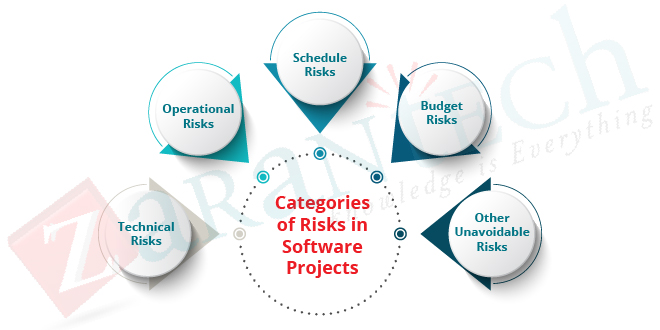Types of risks in software testing
Category: Quality Assurance Posted:Mar 29, 2015 By: Robert
 Are you currently working on developing new test plan for your software project or software testing? Have you worked on all the risks in your test plan? Testing process is the last stage while completing a software project, hence testers are always under enormous pressure and time is limited for them. So prioritization plays an important role in the testing process. So we need to test the risk for the tests.
Are you currently working on developing new test plan for your software project or software testing? Have you worked on all the risks in your test plan? Testing process is the last stage while completing a software project, hence testers are always under enormous pressure and time is limited for them. So prioritization plays an important role in the testing process. So we need to test the risk for the tests.
How to define Risk?
“Risks are unknown events in the future with the chances of loss and easy occurrence. If software risks are effectively analysed, this shall help in effective analysis of the risks and shall help in planning our future tasks. In this article we shall understand the different types of risks:
Categories of risks:
 1.Schedule Risk:
1.Schedule Risk:
The delivery date for the project gets slipped when the risks and tasks are not scheduled properly. These risks may affect the project and can lead to project failure and impact on company economy. Schedule risks happen due to the following reasons
The time for delivery is estimated wrongly.
- Tracking for the resources is not done properly. The resources include systems, staff and capabilities of the employee.
- The complex functionalities are not identified properly. So the estimation of time is also not done properly.
- The project has been expanded unexpectedly.
To get a better idea of software testing, Go through this- Top 10 Challenges as a QA Analyst Tester in Software or Web Development
2.Budget Risk:
- The budget has not been estimated properly.
- The project has expanded unexpectedly.
- Costs have overrun.
Go through our Top 30 Interview Questions to crack the QA interview
3.Operational Risks:
These risks occur due to failed system, external risks due to events and lack of process implementation.
Causes of Operational risks:
- Priority conflicts are not resolved properly.
- Responsibilities have not been resolved properly.
- Lack of resources.
- Lack of training.
- Lack of planning and scheduling for the resources.
- Lack of communication in the team.
4.Technical risks:
Technical risks occur due to lack of performance and implementation of functionalities.
Causes of technical risks are:
- The project requirements are changing continuously.
- Technology advancement is not available.
- Project implementation is complex.
- Integration of modules has become difficult.
5.Programmatic Risks:
These risks are beyond the operational aspect. The events that lead to such defects are:
- Lack of funds.
- No market development
- Product strategy is changed
- Change of government rule
Watch this insightful video from ZaranTech for QA beginners:
 1.Schedule Risk:
1.Schedule Risk:



 99999999 (Toll Free)
99999999 (Toll Free)  +91 9999999
+91 9999999